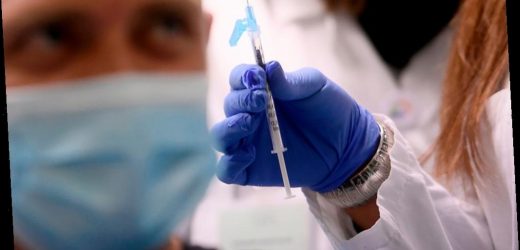More On:
COVID vaccine
‘Blithering incompetence’: Critics pan NY’s COVID vaccine rollout
UK allows mixing COVID-19 vaccines as experts warn of risks
New York lagging behind Florida in administering coronavirus vaccines
Pharmacist arrested after hundreds of COVID vaccine doses destroyed
U.S. health care workers are first in line to receive the COVID-19 vaccine — but an alarming number across the country are refusing to do so.
Earlier this week, Ohio Gov. Mike DeWine disclosed that about 60 percent of the nursing home workers in his state have so far chosen not to get vaccinated.
More than half of New York City’s EMS workers have shown skepticism, The Post reported last month.
And now California and Texas are experiencing a high rate of health care worker refusals, according to reports.
An estimated 50 percent of frontline workers in Riverside County in the Golden State opted against the drug, the Los Angeles Times reported, citing public health officials.
More than half of the hospital workers at California’s St. Elizabeth Community Hospital that were eligible to receive the vaccine did not, the newspaper.
And in the Lone Star State, a doctor at Houston Memorial Medical Center told NPR earlier this month that half the nurses in the facility would not get the vaccine, citing political reasons.
The excuse shared by the Texas nurses was echoed in a recent Kaiser Family Foundation survey that found 29 percent of health workers were “vaccine hesitant,” the Times reported.
Survey respondents leaning against taking the vaccine said, among other reasons, that they were concerned how politics influenced the development of the vaccine, the newspaper reported.
A nurse at a California hospital who chose not take the vaccine because she is pregnant, said her coworkers who chose the same path as her believe they don’t need the vaccine to make it through the pandemic.
“I feel people think, ‘I can still make it until this ends without getting the vaccine,’” April Lu, a 31-year-old nurse at Providence Holy Cross Medical Center, told the Times.
A high percentage of vaccine refusal among not just health care workers, but the general population, could be problematic, Harvard epidemiologist Marc Lipsitch told the newspaper.
“Our ability as a society to get back to a higher level of functioning depends on having as many people protected as possible,” said Marc Lipsitch.
Share this article:
Source: Read Full Article


